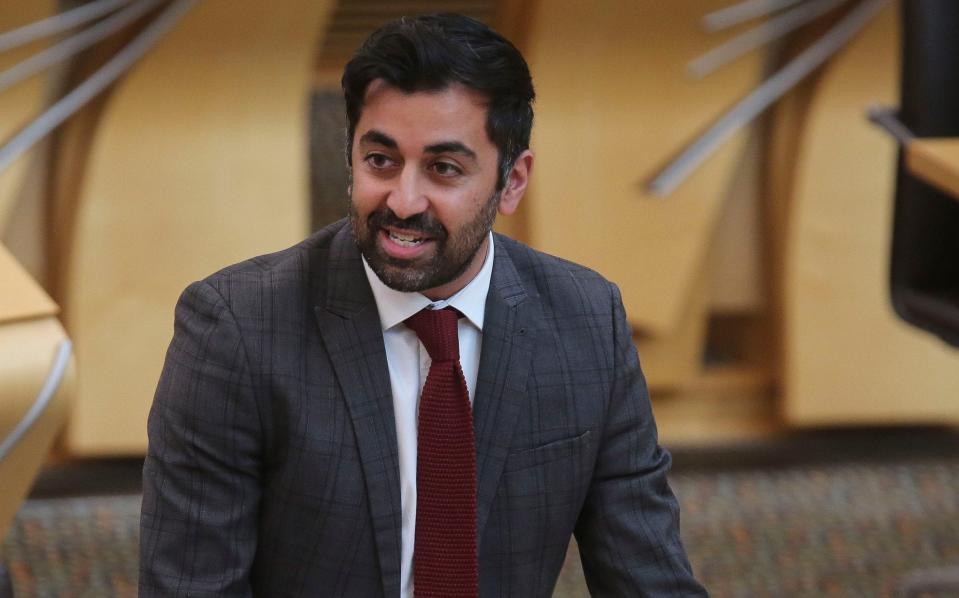Scottish nightclubs and bars launch legal challenge to block vaccine passports

Nightclub and bar bosses have launched legal action against Nicola Sturgeon’s government in a last-ditch attempt to block the introduction of vaccine passports next week.
The Night Time Industries Association has lodged a petition for judicial review, asking the courts to declare the policy unlawful. It will be represented by Roddy Dunlop QC, dean of the Faculty of Advocates.
In a statement, the trade body said the policy was “likely to be unlawful” as it was neither “proportionate” nor “the lowest level of intervention possible” to achieve the desired public health impact.
The group, which represents bars, pubs and nightclubs, said it had hoped that the First Minister would reconsider the need for the scheme, given Covid rates had fallen markedly in recent weeks.
It also accused the SNP-Green coalition of having failed to conduct any “meaningful consultation” with the industry, resulting in a series of “deep-rooted problems” with the planned operation of the controversial scheme.
Only those who can show they are fully vaccinated by downloading a QR code will be allowed to enter nightclubs or large events, such as concerts and sports matches.

On Tuesday, Ms Sturgeon dramatically extended the scheme, due to come into force at 5am on October 1, by including pubs and hotels if the premises had a “designated space” for dancing.
Instead of applying only to nightclubs, passports will have to be presented at all licensed premises serving alcohol after midnight that provide live or recorded music “for dancing”, and a space “in use” for dancing.
The First Minister said families would not be expected to present their vaccine passports if they were going for a pub lunch but “by the evening, it would be reasonable to check customers as they arrive”.
This raises the prospect of Scots having to present proof of vaccination if they go out for dinner at a pub or hotel, even if they leave immediately after their meal and have no intention of staying later to dance.
‘No meaningful consultation’ with night-time traders
The Scottish Licensed Trade Association estimated that about 2,000 premises in Scotland would meet the criteria, but “only about 100 of these are what the public think are nightclubs”.
Gavin Stevenson, the vice chairman of Night Time Industries Association Scotland, said: “It is with an extraordinary sense of disappointment and frustration that we have commenced legal action against the Scottish Government.
“While Scottish government ministers have repeatedly claimed to be engaging with the sector, in reality there has been no meaningful consultation and little if any objective assessment regarding the balance of the four harms before announcing the vaccine passport scheme.”
He said the scheme “as currently proposed creates serious and unresolvable problems with unfair competition, market distortion, discrimination, resources, staffing and financial impact to businesses”.
In its statement, the Night Time Industries Association said: “It is also clear to us that the policy as currently proposed is neither proportionate, nor represents the lowest level of intervention possible to achieve the public health imperative, and it is therefore likely to be unlawful.
“Regrettably then, and given the serious flaws in the policy as proposed, we have now instructed our legal team to commence proceedings against the Scottish Government with a legal challenge to vaccination passports.”

Donald MacLeod, a Glasgow nightclub owner, said providing a negative lateral flow test should be sufficient to get into nightclubs.
He told BBC Scotland’s Call Kaye radio show: “I think it’s terrible. It’s iniquitous, it’s inequitable. If common sense was applied, it would be ditched.
“The definition of a nightclub is ridiculous. Is it right that a door steward is being asked to check someone’s medical records? It doesn’t stop the spread. There’s no evidence.”
Murdo Fraser, the Scottish Tories’ shadow Covid recovery secretary, said: “The Night Time Industries Association’s legal challenge to vaccine passports is a justified response to what is an extreme, damaging and profoundly unfair scheme.
“The NTIA has had no choice but to take the SNP Government to court, after their concerns have been repeatedly and deliberately ignored by the Government.”
‘Last orders’ for vaccine passports?
Alex Cole-Hamilton, the leader of the Scottish Liberal Democrats, said: “It’s a shame that the willingness of the industry to work on jointly acceptable solutions is not matched by SNP ministers. Hopefully, this legal action will turn out to be last orders for this illiberal Covid ID card scheme.”
However, Humza Yousaf, the SNP’s Health Secretary, told BBC Radio Scotland: “If we have a certification scheme in place, not only will it help us in relation to high-risk venues, but hopefully what it will do is maximise the time that they can stay open.
“If, goodness forbid, things become more challenging with Covid, or there’s another spike, for example, in cases, with a certification scheme we can hopefully keep those businesses open for longer.”

 Yahoo News
Yahoo News 
